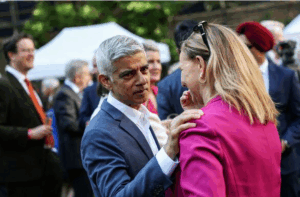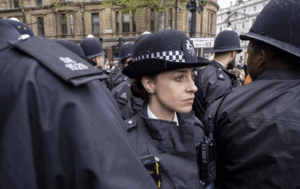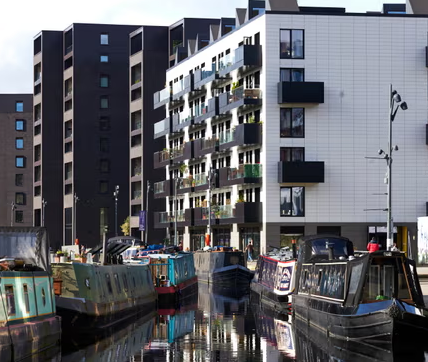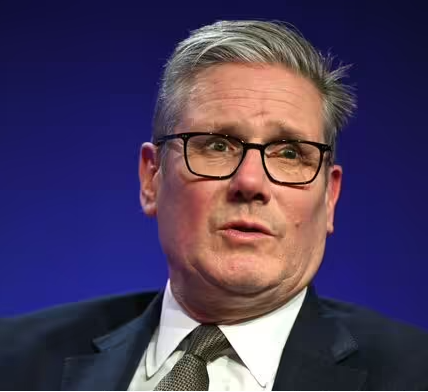London Mayor Sadiq Khan has thrown his weight behind calls to decriminalise small amounts of cannabis, pointing to a new report from the London Drugs Commission.

London Mayor Sadiq Khan has thrown his weight behind calls to decriminalise small amounts of cannabis, pointing to a new report from the London Drugs Commission (LDC) that he says makes a “compelling, evidence-based case” for reform. The report, which Khan himself commissioned and which is chaired by former lord chancellor Lord Falconer, argues that the current laws are “disproportionate to the harms” cannabis poses and unfairly target ethnic communities.
This latest proposal is not only tone-deaf, it’s worryingly out of touch with the realities that many Londoners face. In a city where crime and antisocial behaviour are on the rise, the last thing we need is yet another policy that further undermines public order and civic standards. Khan seems more concerned with courting a progressive policy win than addressing the very real sense of unease among those who live and work in the capital.
Let’s not pretend cannabis enforcement is draconian in the UK. Under current law, cannabis is classified as a Class B drug, meaning possession can lead to a fine or imprisonment. In practice, however, nearly three-quarters of those caught with cannabis are not prosecuted. First-time offenders are often offered schemes focusing on education and treatment rather than criminal sanctions. So, what exactly is being decriminalised? The law already operates in a lenient and discretionary way.
Khan and his commission have chosen to interpret this as injustice. But what’s truly unjust is the mayor’s unwillingness to prioritise law-abiding citizens who are increasingly navigating a city where antisocial behaviour is becoming the norm. In the year to March 2025, antisocial behaviour accounted for over 20% of all crimes reported in London, with more than 231,000 incidents – up 1.1% from the previous year. These are not abstract statistics. They reflect the everyday experience of residents who face disorder, intimidation, and deteriorating conditions in shared public life.

It would be naïve to claim that decriminalising cannabis will have no consequences. While there is no direct causation between cannabis possession and antisocial behaviour, loosening enforcement around drugs sends a broader cultural message: that disorder is acceptable, and accountability is optional. That message won’t be lost on a population already fatigued by low-level lawlessness.
It’s difficult to overstate the decline in basic propriety on London’s public transport, from music being blasted from speakers to pungent meals unpacked with abandon, and even passengers clipping toenails in full view. The idea that these same spaces should now become even more permissive, potentially fogged with the putrid stench of weed, is not just unpleasant. It’s reckless.
And yes, cannabis smells. Let’s stop tiptoeing around that fact. It lingers, it invades, and it makes shared spaces intolerable. There is nothing progressive about green-lighting more of it. The mayor’s argument also leans heavily on claims of racial injustice. According to the LDC, cannabis enforcement continues to “focus on particular ethnic communities,” contributing to mistrust in the police.
But we’ve heard this before from the Mayor, whose answer to everything from transport levies to policing failures is some vague invocation of structural racism. If anything is damaging public confidence in the Met, it’s the force’s inability to tackle real crime, while appearing more interested in monitoring social media posts than ensuring women feel safe walking home.
Yes, the Misuse of Drugs Act is outdated. It hasn’t been formally reviewed in over fifty years, despite the fact that drugs are cheaper, more potent, and more available than ever before. More than three million criminal records have been issued under the Act, with sentences totalling over 680,000 years in prison since 1986. And since 2010, more than 80% of drug offences recorded have been for simple possession. We clearly need a fresh approach.
But re-evaluating our drug laws is not the same as surrendering to every activist-led commission with a one-track recommendation. The state’s response to drugs should be smart, proportionate, and most importantly, anchored in social reality. London is not Amsterdam. Nor should it become San Francisco, where progressive drug policies have led to open-air drug use, urban decay, and soaring rates of addiction-related harm. In Colorado, liberal cannabis laws were followed by an increase in emergency room visits, impaired driving, and youth usage. These are not just growing pains; they are cautionary tales.
Even Sir Keir Starmer, hardly a stranger to policy reversals, has said he has no plans to reclassify cannabis if elected. The Home Office also reaffirmed this stance only last week. Clearly, this policy isn’t a vote winner.
Clearly, Sadiq Khan seems more invested in appearing progressive than confronting the actual conditions Londoners endure on the ground. For the man responsible for overseeing Britain’s largest police force, it’s incredible how little thought appears to have gone into the day-to-day consequences of his latest bright idea.
Also, it stinks.

